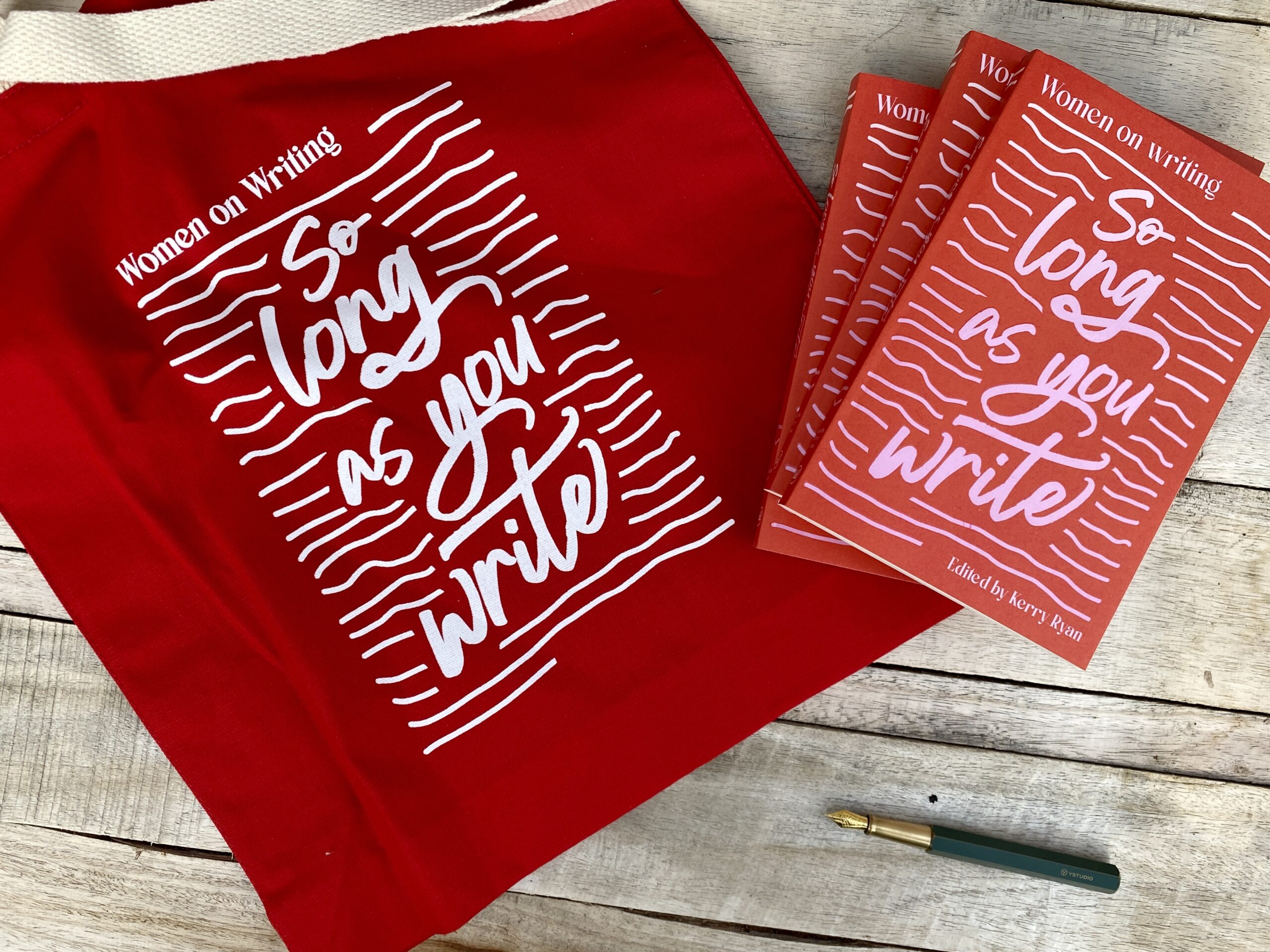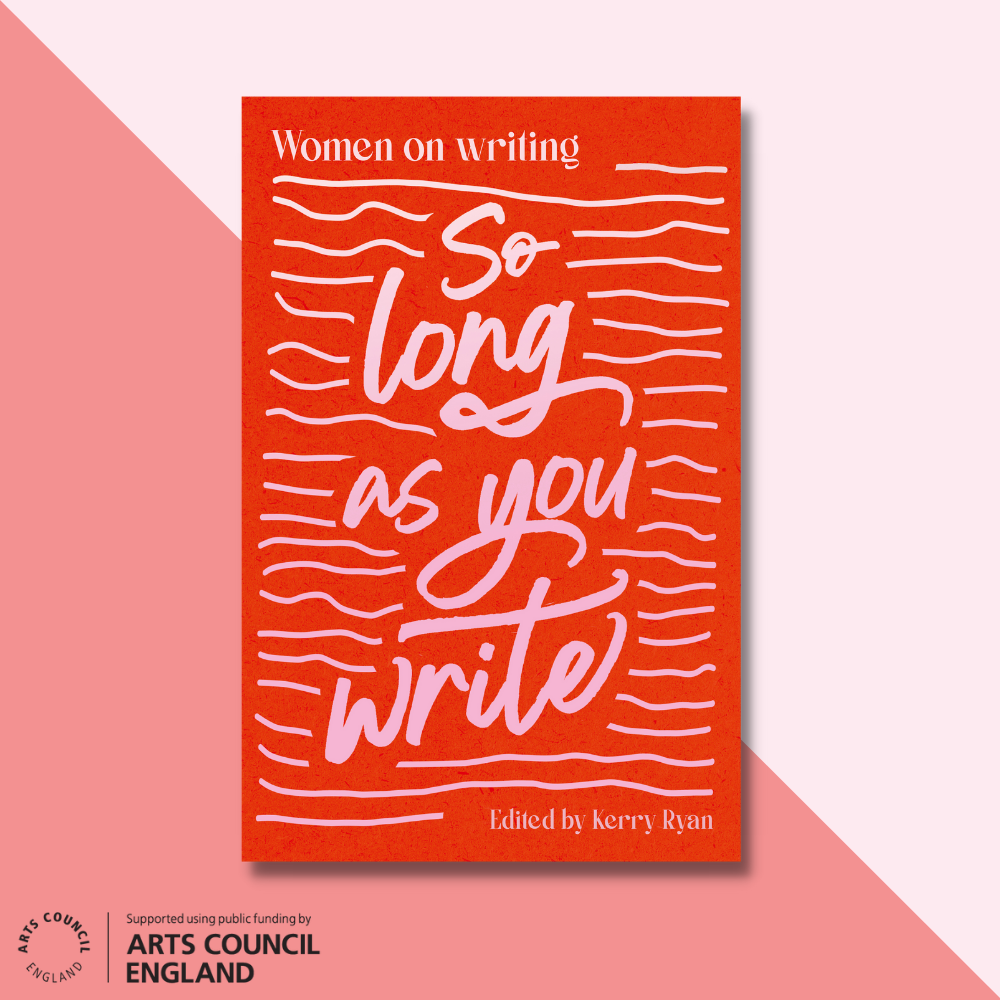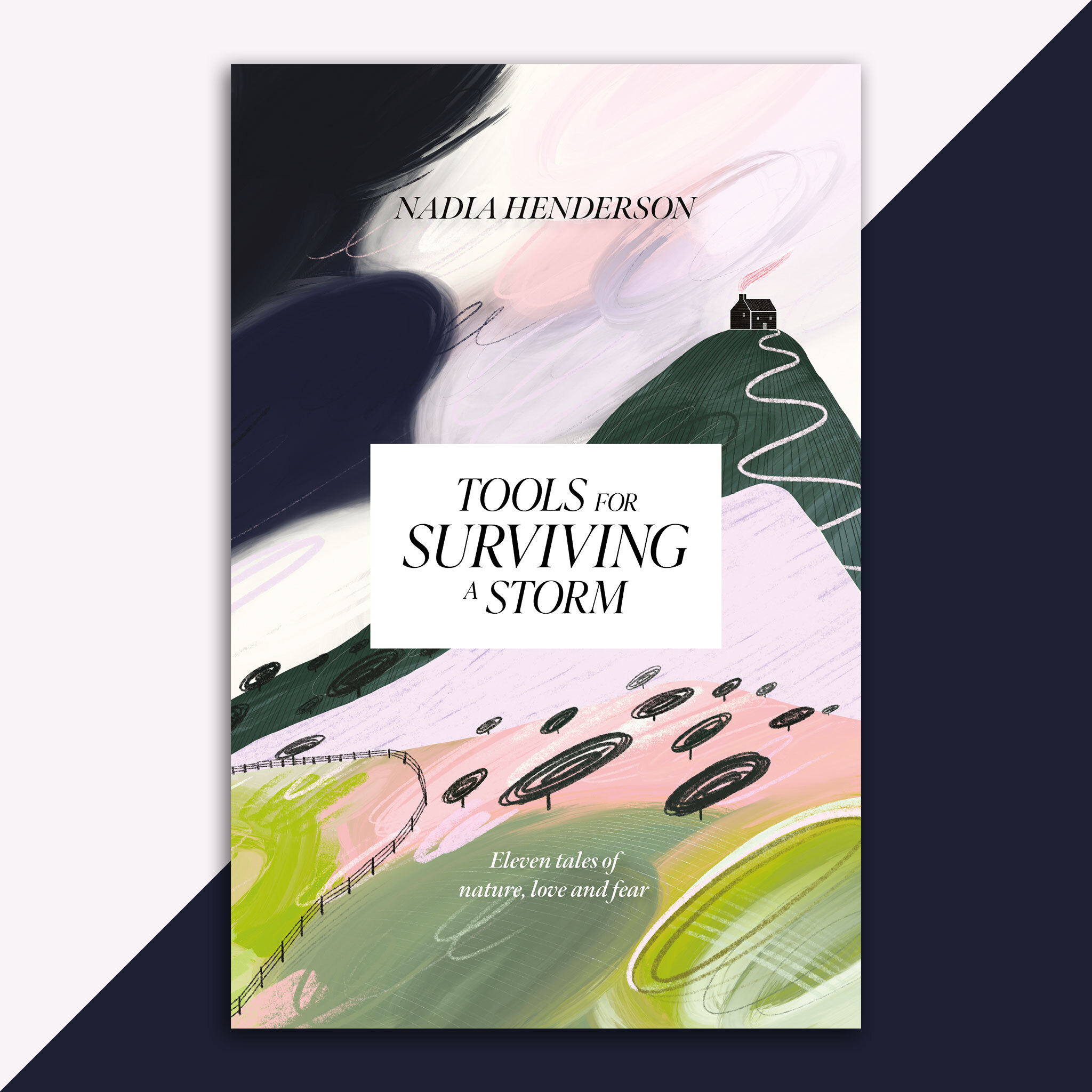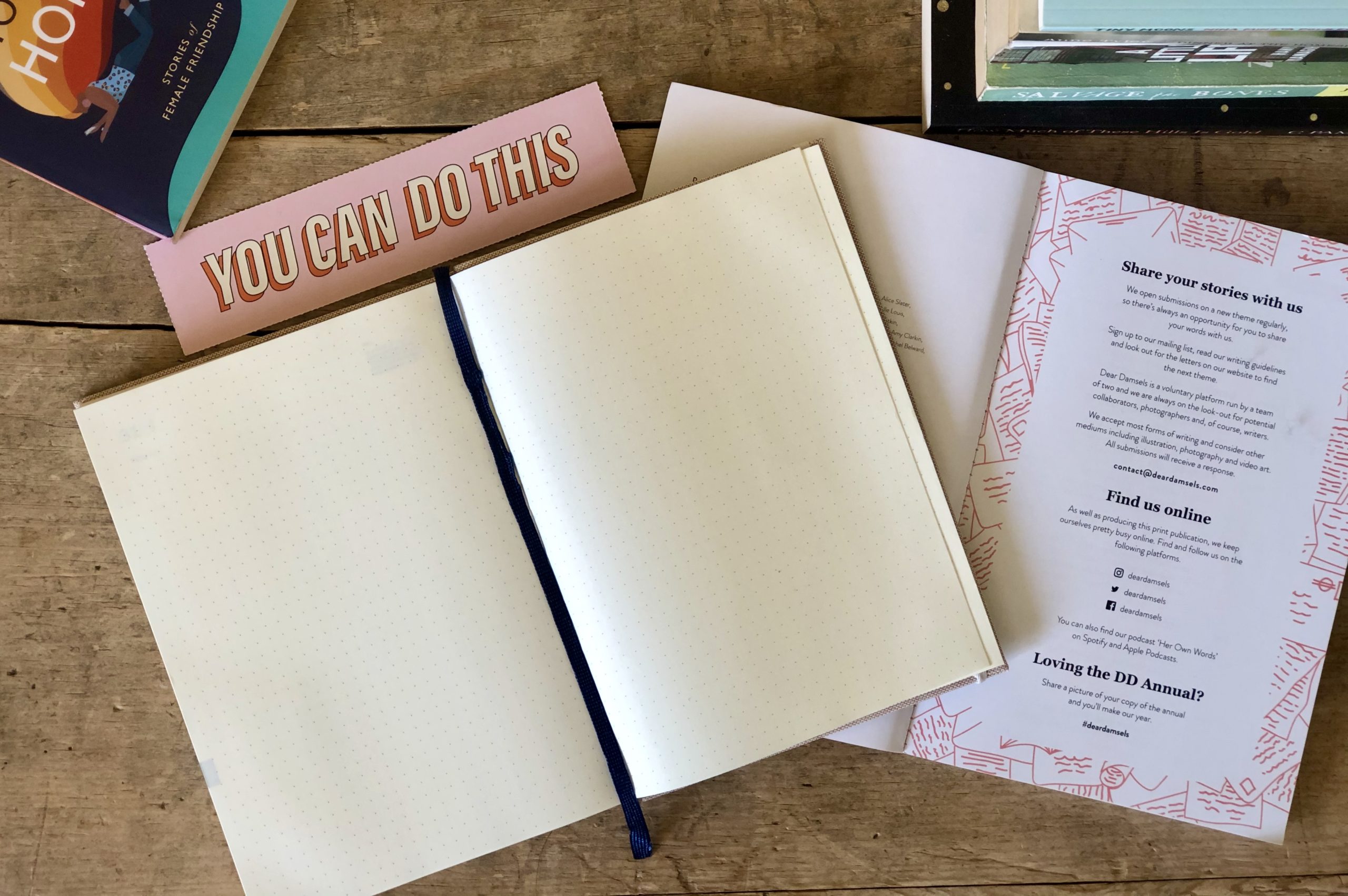THE MAGNOLIA TREE | In Lucy Porter’s short story, memories of magnolia transport her protagonist to another time and place.
by Lucy Porter
When all of the listless hours begin to press down on me, I like to play a little game that my grandma taught me. I lie back on my bed, angling my head so that the only thing framed by the window is sky. Then I send myself (and this tiny room) somewhere else for a while.
More often than not, that somewhere else is the coast that raised me. In these moments, I almost believe that if I were to look out of the window again, I would not see empty streets lined with sleeping cars, but fields and fields of long grass rippling silver in the wind, a crumble of old rocks falling down into the sea, that distant line where water and sky kiss. Today, as the wind rolls around the outer walls of the building, I pretend that it is the sound of the waves, their white horses thundering onto the sand.
I get up and check to see if the world has bent to my wishes, but no such luck. From my window, I can see rows and rows of neat little rooftops, lined up obediently like so many soldiers; a tangle of tree branches, some daubed in yellow and rust, others speckled with the first optimistic buds of spring; the great lego-brick blocks of the housing estates rising into the dusk; distant monuments shimmering like ghosts on the horizon. Nothing else.
It is the same view as it always was. I suppose this should be comforting. The trees shift and sway. I watch for the slow coming of their leaves, day by day. My neighbours are still absent from their windows. There is nobody to wave at or call across the street to.
I need more. I climb up onto the window sill and lean my head against the glass. As I press my temple flat against the pane, I just catch sight of my neighbour’s magnolia tree, spreading its branches in the garden below like an old familiar friend. I pull the window up and lean out. The flowers are slowly opening up to the spring like cupped hands in ivory and blush. I sit there watching the blossom, running my mind over the waxy smooth petals, feeling the ghost of them against my fingertips.
My grandma had a magnolia tree in her garden. Each spring, the sight of these flowers sends me back to her home more than any other form of memory could. The scenes in photographs assert themselves over my own frail recollections, and family stories warp and bend as they are passed mouth to mouth. But the magnolia trees are unchanging, year after year. A single blossom before me, and a lightning strikes my synapses that is akin to time travel; peppermints clink in the dish, floorboards crack beneath thin carpets, chips sizzle in the fryer, sunlight splinters through the paperweights along the windowsill, and the house fills with the cold, breathy notes of the out-of-tune piano. My cousins and I scramble up into the arms of the old apple tree, whose fruit she would pluck for her famous apple crumble, the delicacy of our childhood laced in evaporated milk.
Other memories, too. I must have been about eight years old when she started talking to me about death.
‘I’d be quite happy to go now,’ was what she said the first time. I wasn’t the only one in the room, but it was me that she said it to. ‘I’ve had me life, and I’d be quite content for it all to be over now.’
‘Oh, Mum!’ my own mother scolded, and it ended there before I had a chance to really think about what she was telling me. There were many variations on those words over the years.
Perhaps she had singled me out for these confessions. I had always strongly believed that I was my grandmother’s favourite. At the age of five, I asked her who her favourite grandchild was out of the eleven that she had. She told me that it was me with such conviction that I still believe it now.
“As I press my temple flat against the pane, I just catch sight of my neighbour’s magnolia tree, spreading its branches in the garden below like an old familiar friend.”
But it wasn’t just death that my grandma shared with me. She told me the stories of her life too. In her tremulous voice, we would hunker down into worlds long passed by; the tiny bedroom she shared with her sister where the winter frost would creep onto the inside of the window pane; the grand school on the hill that she refused to attend so as to dodge another hand-me-down uniform; the guesthouse on the seafront that she opened with my grandad.
On a map, she showed me the route she would run along the clifftops, leaving the guesthouse after the breakfast service to reach the train station in time for a midday adventure. As she traced the paper lines with an arthritic finger, we were sitting only metres from those paths. After the turning of the years and the slowing of her reluctant joints, it may as well have been miles. It was on one of those days that she confided in me of her game. She taught me how to fix my gaze on the sliver of sky that could be seen from her living room window, how to believe the rest of the housing estate away until we were standing on the edge of the land. The image of my grandma’s younger self running along those cliffs, long-legged, hair flying, her body outlined by the sun like the crests of the waves . . . it was her that I envisioned, but it was also me.
One winter, it snowed so heavily and the roads iced so fiercely that no matter how the drivers tried to slow and brake, the cars on the roads still slid to meet one another with a bump. By then, my grandma could barely shuffle from her armchair to the front door. My mother gave me a shopping list, and I ran from my parents’ house to the shops, and then to my grandma’s. She hadn’t been outside for weeks by that point.
‘This isn’t what I asked for,’ she said looking at what I’d brought.
I rubbed my dry, numb hands together, and hoped she’d notice the ice caking my trainers and the red tip of my nose.
‘Sometimes I think about taking all me pills at once,’ she said, discarding the newspaper I’d brought into the wastepaper basket. ‘But then I’m so slow, I’d probably faint before I could do any real damage!’ She was laughing as she said it. She looked happy.
‘Don’t say that, Grandma.’
‘It would be better if I could only get meself down to the seafront, then I could pop off the edge of the cliffs,’ she mused, hunting around in her cardigan pocket for a mint imperial. ‘Trouble is, I wouldn’t be able to get me leg over the railings.’ She sighed and her clasped hand fell into her lap, unsuccessful in its quest. ‘It’s been so long since I saw the sea.’
‘When the weather gets warmer, we’ll find you a wheelchair and I’ll run you down there.’
‘I’m not going in a wheelchair,’ she said, in a stern voice she’d never used on me before.
‘You won’t be going in a wheelchair,’ I said, perching on the arm of her chair. ‘We’ll be going for a run together, you and me. Along the clifftops, like you used to. We’ll fly along. It’ll be fun.’
I kissed the top of her head, felt the smooth curve of her skull beneath the frail web of hair.
My grandma went into the home before I could get her down to the sea.
I try and sit with these recollections and let them be. Too many images of my life from the before times have been rubbed away by repeated use – my memories are fickle and easily tempted.
But if I sit here on my window sill, and call her back to me through the branches of the magnolia tree, there is one moment from our past that I am willing to embroider. My mind wanders back to my last visit, to the sharp institutional lines of the room that wasn’t really hers, and the tell-tale smell of boiled cabbage and urine. I find her on that cage-like bed, with the thin sheets that showed us just how tiny she had become. It is the same memory as it always has been. Only this time, she recognises me. I unfold myself from this window ledge, and stretch out limbs that have become stiff and reluctant from weeks of being locked away. I hold her papery hand in my own and we turn to face the horizon. The sea is out there somewhere. And we run, and we run, and we run.
Lucy Porter | @LucyMPorter
Lucy Porter is a researcher and civil servant living in London. She is currently studying for a PhD in Psychology, which has allowed her to fulfil her dream of becoming a published author (just not in the way she’d always planned). She is obsessed with food, dogs, swimming, books, and rambling around London.






